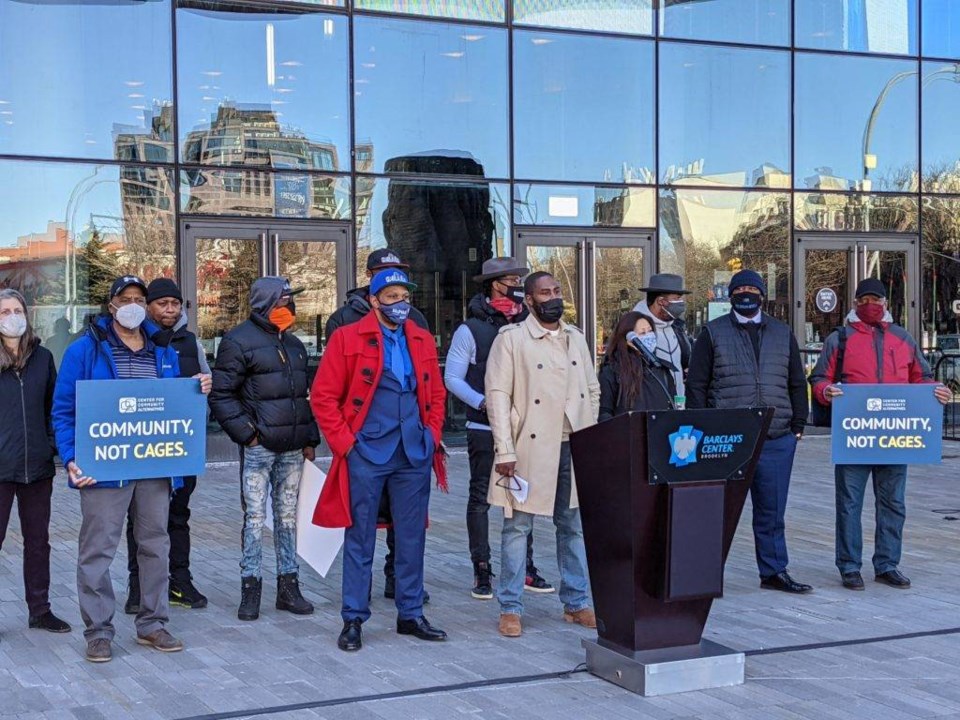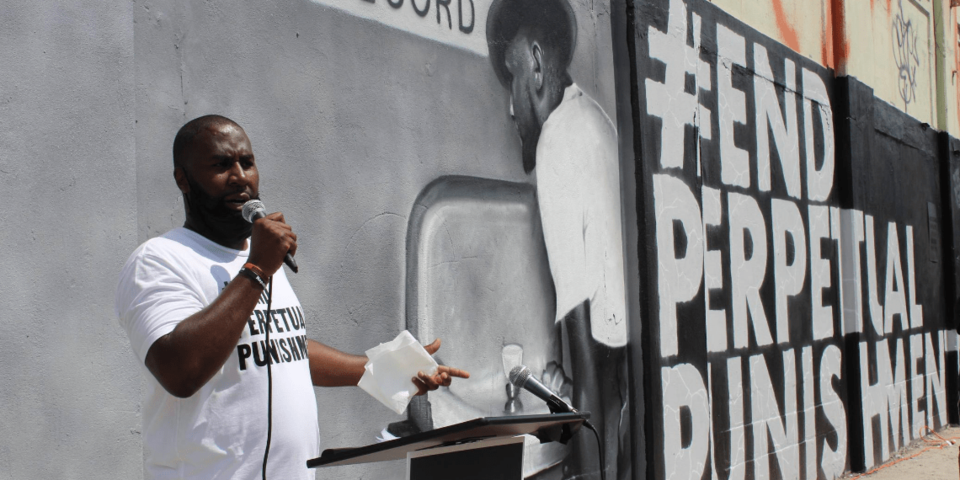For Brooklyn activist Michael "Zaki" Smith, the fight to seal and expunge criminal records is personal.
Born and raised in Bed-Stuy, Smith spent more than sixteen years of his adolescent and adult years in and out of prison. Once he got his life on track, he started to find his passion — working with young people.
But after more than four years working as a 'dream director' with teens in Newark, he got a letter from the The New Jersey State Board of Education saying he could no longer work in any school in the state of New Jersey, due to his criminal history.
Now, as a policy entrepreneur for Next100 Smith dedicates his time to helping others like himself who are perpetually affected by a "silent life sentence" — a criminal record.

On Thursday, Smith, alongside other local leaders and politicians, stood outside Brooklyn's Barclays Center in support of the Clean Slate NY bill.
The legislation would make it easier for those with a criminal record to find housing, employment and other essential services by sealing misdemeanour convictions one year after sentencing and felonies three years after sentencing — provided the person was off probation and parole, was not facing criminal charges and was not on the sex offender registry. If a person stayed out of trouble, their records would be expunged after a period of time determined by the convictions they had received.
"This is a moment of opportunity to correct, repair and heal our communities that have been heavily impacted by criminal punishment system through over policing and the criminalization of poverty, the criminalization of addiction and the criminalization of mental health in communities of color," Smith said.
Smith said more than 2.3 million New Yorkers were affected by the silent life sentence, facing barriers to employment, education, housing and other crucial requisites to building a life after incarceration. He added the system of perpetual punishment cost everyone, with one study estimating that excluding formerly incarcerated people from the workforce cost the U.S. economy $78-86 billion per year in lost GDP.
"Today we present this bill this expungement, this bill will restore the dignity of human beings, restore and release some of the 44,000 laws and barriers and stigma that exists that people are experiencing as a result of having a criminal record," he said.
In 2020, Smith launched the #EndPerpetualPunishment campaign and Brooklyn mural series to call attention to the perpetual punishment and draw support for the Clean Slate NY bill.
The Clean Slate NY bill is sponsored by Brooklyn Senator Zellnor Myrie. Last year it failed to move beyond the committee stage, where it remains now, but supporting politicians and activists are hopeful the reforming bill will fare better this year.
For Smith, it was also about increasing community safety and reducing rates of recidivism, both of which the bill would do, he said.
"It's an opportunity to make the corrections that this state and city have perpetually punished and punitively inflicted these law on our communities of color," he said.
"After we have served our time, what other debt do we owe?"




